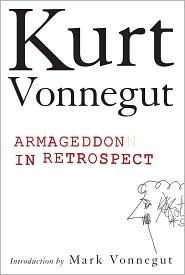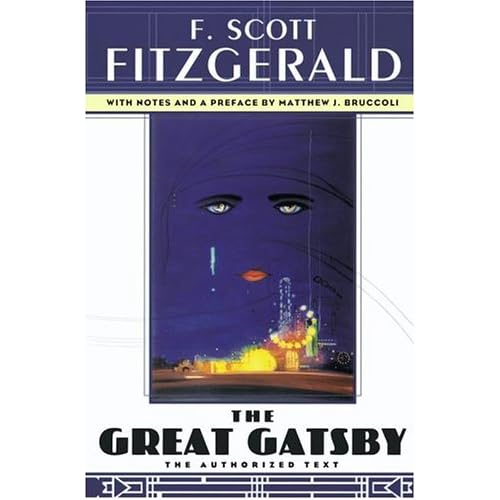
Image by Maciej Szczepaniak from Wrocraw, Poland |
What have you read this past year? |
Looking back at 2010, I hadn’t expected that I’d read the volume of books I have during the course of the year. For one thing, I’m not a very fast reader — I tend to savor the language, unless the book is a work of non-fiction. Jeanette Walls happily changed that outlook with her memoir. For another, I tend not to read while I’m working on a project, since I have limited time to begin with, and I try to shoehorn my reading in after dinner and before bed.
I also tend to purchase a lot more books than I have time to read, and that pile is growing almost uncontrollably. As a result, I have no less than a dozen books on my bedside table that I started reading during 2010, their dust jackets neatly tucked into the page I left off. (I generally don’t use bookmarks, since the metal ones tend to tear and bend the page, while the paper ones get bent and damaged, and I can’t bring myself to spend $3-$5 on a paper bookmark, especially since it would remain in the book indefinitely. If I really need a bookmark, I’ll use a plastic post-it tag.) So, ignoring my current reads, here’s an abbreviated list of some of the books I’ve devoured in 2010.
|
This is a post-mortem collection of stories, essays, and miscellany that Vonnegut wrote about his experiences in World War II, among other things. The part that sticks with me is his exploration of his time as a POW under Nazi Germany, and the Dresden fire bombing. Not a cheery book by any means, but is full of the venomous double-speak that Vonnegut is famous for, and a damn good read on a subject that no one else ever talks about. |
|
|
A quick read, Bible Code III is the third in Drosnin’s bestselling series. The first two were much more entertaining in the way the Bible Code was described, and the controversies surrounding the code coming to light. This particular edition does little to follow up on those prophesies that may or may not have come to fruition in the intervening decade since the first book was released. I read it simply because I read the first two and felt I needed a followup appointment. Would I recommend it? Only if you’re into the end-of-the-world zeitgeist that seems to be dominating the media, since the book will probably be viewed as a passing curiosity in a few years. |
|
|
This was a fascinating read covering the issues of brain plasticity, its discovery, current research, and breakthroughs. The book is well documented with references to studies in peer reviewed journals of psychology and medicine. One important note, however, is that Dr. Doidge’s chapter on sexual addiction only references his own works. This is not to say wether I agree or disagree with the author, or whether the author is correct in his assertations, but it suggests that his views put forth in the book on that particular topic are unsubstantiated by any peer-reviewed studies. The remainder of the book is excellent and well worth a gander for anyone who has relatives suffering from brain ailments. |
|
|
Having previously read Moore’s Lamb: The Gospel According to Biff, Christ’s Childhood Pal (and nearly pissing my pants with laughter in the process), and fresh off reading his holiday zombie tear, The Stupidest Angel, I dove right into this off-color retelling of Shakespeare’s King Lear, and was not disappointed. I highly recommend it, especially if you like to see the Bard’s works colorfully deconstructed. |
|
|
A journalist and news-writer for one of the cable news outlets (I believe it was CNBC), Walls’ memoir about her childhood in Arizona and West Virginia is mind-blowing from the get-go with it’s out of the frying pan and into the fire style and story. If you don’t like memoirs, you’ve never read The Glass Castle. |
|
|
|
Hitchens makes an excellent case against religion in this to-be-classic modern manifesto of atheism. But be warned — don’t read it unless you’re prepared to set your religious beliefs aside to consider his reasoning. (Of course I’m also reminded of Douglas Adams’ The Hitchhiker’s Guide to the Galaxy where he describes the case of the philosophers who successfully argue that black is white and get themselves trampled to death at the next zebra crossing…) There’s another remarkable thing about this book — it’s publisher. Twelve is an odd little company that’s decided to only produce 12 books a year. The result of this more focused approach is a larger than normal bestseller rate than other publishing houses in the industry. |
|
This is the second or third time I’ve read Gatsby, and I still feel like the story’s a little too simple. It’s not a big book to begin with, clocking in at a mere 133 pages. The supporting material in the edition I read was an additional 40 pages, increasing the size of the book by almost a third. As far as the novel goes, it’s a fine piece of work, and very much a product of its time. Because of this, and a lack of context on the modern reader’s (my) part, I still don’t think I’ve connected with the story’s zeitgeist, so I’ll probably be reading it again in the future. |
|
|
Brunonia Barry’s second book focuses on one of my favorite cities, Salem, and a psychological mystery. Without giving too much away, I’ll just say the story has a nice clever twist to it that doesn’t cheat the mystery reader. |
|
|
The copy I read was of a new edition restored from Hemmingway’s notes and edited by his grandsons. The language is as spartan as I remember his short stories being, adding to the feeling of being personally tutored by Papa Hemmingway in writing, even though there’s plenty he did that modern writing pundits disagree with, not the least of which was his heavy drinking. |
Please feel free to share your thoughts on these titles and authors. What did you read during 2010 that you found memorable, humorous, provocative? Please share your thoughts and opinions.









